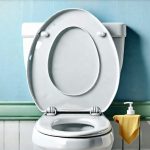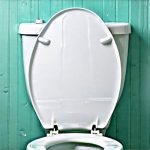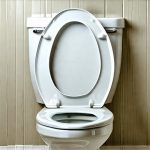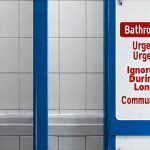That sudden, insistent need to rush to the bathroom after enjoying (or perhaps over-enjoying) a large afternoon coffee is a remarkably common experience. It’s something many people can relate to – that feeling of urgency, often arriving relatively quickly after your last sip, and sometimes catching you off guard at an inconvenient moment. This isn’t necessarily a sign of a medical problem; it’s more often a predictable physiological response to the complex interplay between caffeine, hydration levels, bladder function, and even psychological factors. Understanding why this happens can provide reassurance and potentially help manage this frequent occurrence.
The sensation is rarely just about the volume of liquid consumed. It’s not simply that you drank a lot of coffee, triggering your bladder to fill; it’s the way caffeine interacts with your body’s natural systems that amplifies the urge. Caffeine has several effects on the urinary system – acting as a mild diuretic (increasing urine production), influencing bladder control mechanisms, and even impacting how we perceive the need to urinate. This complex interaction explains why a large afternoon coffee can lead to unexpected bathroom trips, and why some individuals are more susceptible than others. The timing also plays a role; an afternoon intake sets up potential issues as you move towards evening and nighttime hours when bladder control is generally reduced. If you’ve recently been diagnosed with a condition impacting your digestive system, consider follow-up testing tips after a diagnosis is made to stay on top of your health.
Caffeine’s Impact on the Urinary System
Caffeine’s effect on urination isn’t about forcing your kidneys to create excess fluid. It primarily works by influencing how the kidneys filter fluids, reducing reabsorption of sodium and water. This means more water ends up in the urine, leading to increased volume. While often described as a diuretic, caffeine’s actual diuretic effect is relatively mild – especially in regular coffee drinkers who develop some tolerance. However, even a small increase in urine production can be significant when combined with an already full bladder or reduced hydration.
More importantly than direct fluid changes, caffeine impacts the detrusor muscle which controls bladder contraction. It has been shown to increase the contractility of this muscle, meaning your bladder may feel fuller and more urgent even if it isn’t physically overflowing. This effect is amplified by the fact that caffeine can also reduce the sensitivity threshold for initiating urination – essentially lowering the “fullness” signal that triggers the urge to go. It’s a double whammy: increased potential volume and heightened urgency, making that bathroom dash feel unavoidable. Finally, it’s important to remember individual variation. Some people are simply more sensitive to caffeine’s effects than others due to genetic differences in how they metabolize the substance. Regular coffee drinkers may also experience less pronounced diuretic effects over time as their bodies adapt. The size of the coffee itself (a small espresso versus a large latte) and other ingredients, like milk or sugar, can further modify these responses. Understanding your body’s response is key, and tracking gut health before and after fasting can provide valuable insights into how different dietary changes impact you.
Bladder Function & Behavioral Factors
Beyond caffeine’s direct physiological impact, understanding normal bladder function is crucial to appreciating why afternoon coffee creates urgency. A healthy bladder can comfortably hold around 16-24 ounces of urine. However, the sensation of needing to urinate typically begins at much lower volumes – often around 8-10 ounces – as a protective mechanism. This allows time to find a restroom and avoid accidents. Several factors influence this threshold, including age, hydration status, and psychological state.
The pelvic floor muscles play a vital role in bladder control. These muscles support the bladder and urethra, helping to prevent leakage. Weakened pelvic floor muscles can lower the urgency threshold, making individuals more prone to feeling the need to go frequently. Furthermore, habitual bathroom trips – even if not fully necessary – can reinforce this pattern. If you regularly rush to the bathroom “just in case,” your brain begins to associate bladder fullness with an immediate need to relieve yourself, leading to a heightened sense of urgency. This is why behavioral therapy techniques like “bladder training” are sometimes recommended for managing overactive bladder symptoms. A sudden onset of these issues might be related to markers that track gut recovery after stomach viruses, so it’s important to investigate potential causes.
The psychological aspect cannot be ignored. Stress and anxiety can both contribute to increased urinary frequency and urgency. The anticipation of needing the bathroom, particularly after coffee consumption, can also create a self-fulfilling prophecy – essentially amplifying the sensation even before you feel it. It’s important to recognize this mind-body connection when experiencing these episodes.
Managing Coffee-Related Urgency
So, what can you do about that post-coffee rush? The first step is awareness. Recognizing the link between your coffee consumption and urgency allows for proactive adjustments. Here are some strategies:
- Moderate Intake: Reduce the size of your afternoon coffee or consider switching to decaf. Even a small reduction in caffeine can make a noticeable difference.
- Hydration Balance: Counterintuitively, staying adequately hydrated throughout the day is important. Dehydration concentrates urine, which can irritate the bladder and exacerbate urgency. Drink water consistently, but avoid large gulps immediately before or during coffee consumption.
- Timing Matters: Avoid consuming large amounts of coffee close to bedtime, as this increases the likelihood of nighttime awakenings due to urination. If you experience shoulder pain alongside these digestive symptoms, it may be related to GERD and sore shoulders after a large meal.
Lifestyle Adjustments for Bladder Control
Beyond coffee habits, incorporating specific lifestyle adjustments can improve overall bladder control and reduce urgency:
- Pelvic Floor Exercises (Kegels): These exercises strengthen the pelvic floor muscles, improving support for the bladder and urethra. Aim for consistent practice – several sets of 10-15 repetitions daily.
- Dietary Considerations: Some foods and beverages can irritate the bladder, increasing urgency. Common culprits include alcohol, spicy foods, citrus fruits, and artificial sweeteners. Identify your triggers and adjust your diet accordingly.
- Bladder Training: This involves gradually increasing the intervals between bathroom trips to expand bladder capacity and reduce the sense of urgency. It’s best done under the guidance of a healthcare professional. Consider what you can learn from testing after switching diets to see how changes impact your body.
When To Seek Medical Advice
While coffee-related urgency is usually harmless, it’s important to be aware of red flags that warrant medical attention. These include:
- Sudden changes in urinary frequency or urgency
- Painful urination or blood in the urine
- Difficulty starting or stopping urination
- Incontinence (leakage)
- A persistent feeling of incomplete bladder emptying
These symptoms could indicate an underlying medical condition, such as a urinary tract infection, overactive bladder syndrome, or prostate issues. It’s crucial to consult with a doctor if you experience any of these concerns. Don’t attempt to self-diagnose or treat urinary problems without professional guidance. Remember, seeking help is a sign of proactive health management and can ensure you receive the appropriate care. Checkpoints to review after a digestive health scare can provide peace of mind during uncertain times. Finally, top tests for tracking gut repair after illness are available to help monitor your health.


















